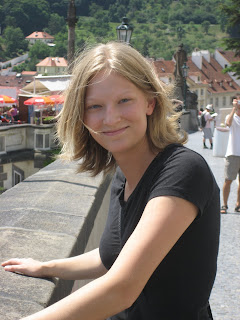The Divine Comedy
At LONG last, after a month of reading, i have completed the final canto of the Paradisio, concluding my several-weeks-long study of Dante Alighieri's Divine Comedy. The whole think is sincerely amusing, brilliant, and medieval. I loved Inferno for its gradation of sins...and if Dante were correct in his assumptions about sin, his description would be perfectly accurate. Besides, the punishments are so well thought out and cruel...
Purgatorio was interesting too, basically since i'm not catholic and have no concept whatsoever of purgatory. So just to see what a medieval Roman Catholic thought working off your sins would look like is fascinating.
Paradisio reads more like a work of philosophy than a narrative. I really liked it. Again, very medieval. Earth at center.... moon, sun, all the planets revolving around it. So once you leave earth, you begin working your way through the heavens... and see manifestations of the elect souls...and in the Empyrean heaven are the actual dwelling of all the elect and at the very top God himself. I must share a few quotes from Paradisio, simply to communicate how amusing and beautiful this piece of literature really is.
"The social relations of man demand diversity of gift, which diversity is provided for by the action of the heavens on human natures, but without regard to descent, so that natural heredity is overruled by celestial influences. Whereas we in assigning a man's place to him give heed only to hereditary position or such-like irrelevancies instead of studying his natural gift. Hence general confusion and incompetency. (intro and paraphrase to canto VII"
..."But ye wrench to a religious order him born to gird the sword, and make a king of him who should be for discourse; wherefore your track runneth abroad the road". (Canto VII, see why paraphrases are good?)
"It is devil-planted Florence that corrupts the world, both shepherd and flock, by her florins. But vengeance shall not lag" (Canto IX)
(see, medieval! Devil, vengeance, all that... we still hold on to a lot of medieval conceptions, interestingly....)
Dante has been guided through the heavens by Beatrice, the woman he loved while on earth. He directs his sight on her and pours out his gratitude, while praying that he may live and die worthy of her love, "whereon she smiled upon him and turned to God in whom alone is true and abiding union of human souls." (Canto XXXI)
Lovely. But i'm glad to be done. 'Twas a difficult read. I'm watching out for translations next time. Reading the proverbial "King James Version" of of this book (as i did) is not recommended.
Labels: book review, literature, thoughts


 As Jill, you are confident, respectful, and a little bit bossy! You have an acquired taste for adventure, and love any challenge that you have to face.
As Jill, you are confident, respectful, and a little bit bossy! You have an acquired taste for adventure, and love any challenge that you have to face.